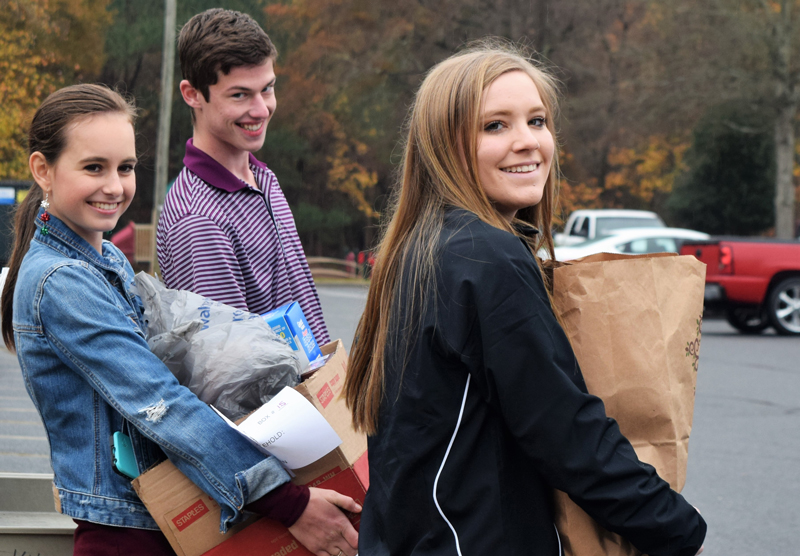
“Do little things for little people with little or no recognition or reward.” Those were the words of Msgr. Ronald Cellini, founding father of the John Paul II School in Ridgeland, as he addressed the class of 2018 at graduation.
A memorable commencement address is hard to find. Yet this was another with a great take-away.
Monsignor pointed out that Christ doesn’t measure success in dollars, degrees, or titles. It isn’t about power or prestige. He reminded graduates that the most important legacy people of faith leave is what they have done for Christ in the least of his brothers and sisters. He challenged them to make that their lifetime project.
Students at JPII and our other Catholic schools do school-wide projects and accumulate service hours in numerous ways. They collect canned goods and raise funds for charities. They amass toys for poor children and pack non-perishable food for the local poor and for organizations with national and international outreach. Youth go on mission trips. Individual students offer volunteer hours in numerous settings.
These activities are basic training for a life of Christian service. Msgr. Cellini exhorted the students to spend the years to come looking for opportunities to touch the lives of the homeless, the poor, the lonely, children, their peers, and the elderly.
Over the past few years, a number of JPII students have volunteered at the St. Francis Center on St. Helena Island and the Mercy Mission in Hardeeville. Both centers distribute food, advocate for needy persons, and champion charitable works. The St. Francis Center, for example, delivers food, towels and washcloths, and sneakers to seasonal migrant workers in addition to its other year-round projects. It works with an ecumenical group to see to it that the elderly and persons with disabilities get ramps built and roofs repaired. The center has gathered donations and purchased furniture and gallons of paint to spruce up a home for previously homeless men.
One of the additional activities of both outreach organizations is operating thrift shops. We typically think of these as fundraising venues. However, the real importance of the shops is their ministry dimension.
People visit the thrift stores to purchase business wear appropriate for job interviews, find summer clothes for their children, plus housewares and furnishings. The prices are ridiculously low, allowing buyers to retain self-respect by paying something rather than receiving a handout. Touching testimonies were recently shared about a bride who found a lovely gown just her size the day before her wedding — which would otherwise have seen her in whatever was the nicest thing in her closet. Then there was the family that found a First Communion dress for their seven-year-old. They were sure they would never be able to find one for only a few dollars.
The JPII commencement urged graduates to keep their eyes open for ways to serve anywhere and everywhere, and to take with them the lessons they’ve learned locally — that opportunities may be around the corner or one town away.
Sister Pamela Smith, SSCM, is the Secretary for Education and Faith Formation at the Diocese of Charleston. Email her at psmith@catholic-doc.org.



